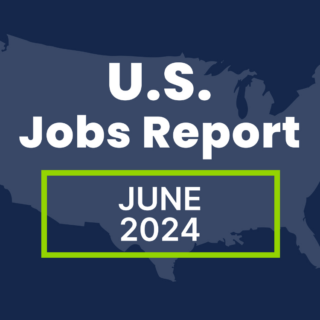As the world of work transforms, the healthcare industry is at the epicenter of change. The industry is growing rapidly and facing a healthcare talent shortage and skills gaps. At the same time, the accelerating pace of medical and technological advancements means medical professionals must constantly adapt to new breakthroughs and changing expectations. Talent acquisition and HR professionals need to be ready to meet the growing challenge. To do so, they must understand the full picture of the healthcare talent landscape.
Is a Generational Change Creating a Healthcare Talent Shortage?
The industry is facing challenges in both supply and demand. Hospitals and Health Networks magazine calls the generational change “the most powerful force operating in our health system right now.”
On the supply side, the baby boomer generation is reaching retirement age, and according to Becker’s Hospital Review, one-third of practicing physicians are more than 55-years old and nearing retirement. Replacing doctors and surgeons who have decades of experience is challenging, as those earlier in their careers lack the years of training, education and on-the-job hours. The next generation in the workforce, Generation X, is relatively small. While the millennial generation is the largest generation in the workforce, the oldest millennials are nearly 40 years old, and some of Gen Z are too young even to start medical school. As baby boomers retire, these generations will have to fill that gap.
Dig Deeper
How RPO Can Solve The Top Challenges In Healthcare Talent Acquisition
On the other side of this equation, the overall population is aging, with 10,000 Americans turn 65-years-old every day. Caring for an aging population will require even more healthcare professionals.
As baby boomers age, the demand for healthcare is increasing, including home health services, long-term and aged care. Chronic conditions like heart disease, diabetes, cancer are becoming more common with nearly half of the American population suffering from a chronic illness. According to a study JAMA Internal Medicine, , baby boomers have a longer lifespan but higher rates of hypertension, high cholesterol, diabetes and obesity. This means the largest generation to reach retirement age will likely also need more healthcare than any previous generation
The Healthcare Talent Shortage
The aging baby boomer generation is fueling industry growth. The healthcare industry is predicted to be the largest driver of growth in the U.S. economy through most of the next decade. Yet, most healthcare organizations continue to experience strains as the healthcare talent shortage increases. This is a multi-pronged issue driven by increased demand, retirement, burnout and a lack of new healthcare professional entering the field complicating healthcare recruitment.
And experts predict the healthcare talent shortage will only get worse. The Bureau of Labor Statistics (BLS) projects that the country will face a shortage of 195,400 nurses by the year 2031. While doctors and nurses are the most visible employees in the healthcare industry, growth in the industry will impact positions throughout the sector. An increase in patients, hospital visits and appointments will call for more support staff, like clinic support, medical technicians, billing and coding professionals and even non-clinical hospital staff like janitorial and food service.
Laboratory technicians are facing many of the same labor challenges as physicians and nurses. Many are reaching retirement age, and retirements are expected to accelerate. Replacing them will tough, as the number of students graduating from laboratory technician programs is declining.
Plus, due to a shift towards home-based care, home health aide shortages are projected to grow significantly. The BLS predicts that the number of openings for home health and personal health roles will increase 37% by 2028.

Less visible roles are also impacted by healthcare talent shortages. The medical coding profession has been plagued for years by a shortage of coders. Job growth for the position accelerated after the implementation of the Affordable Care Act, and experts expect that growth to continue along with the rest of the industry.
A Transforming Workplace
In addition to the healthcare staffing challenges, the healthcare industry is not immune to the changes impacting organizations across the country—like the digitization of services and the growing gig economy. The healthcare industry is always experiencing change due to technological advancement, medical research and new regulations. However, to adapt to these trends, organizations will need to seek out talent in different ways and find people with new skill sets.
Use of telemedicine and virtual care expanded during COVID-19 and are continuing to rise as a way to improve access. Jobs in these types of workplaces require different technology and communication skills than more traditional hospital and clinic jobs.
While many think of the gig economy as a place for creatives or rideshare drivers, the contingent workforce is taking on a greater role in healthcare. SIA reports that hospitals are turning to contract physicians and traveling nurses to deal with the talent shortage. Some practitioners are turning to this freelance work to boost their earning potential, and the system helps increase staffing at rural healthcare facilities that struggle with healthcare recruiting.
Large hospitals are also bringing in a greater share of doctors due to consolidation within the industry. Since 2019, over 100,000 private practice doctors have transitioned into employees of larger corporate healthcare organizations. Nearly three-quarters of physicians are part of larger healthcare systems in the U.S., a record high.
A Necessary Response
To remain competitive in this challenging talent landscape, healthcare organizations must take a proactive approach to planning their workforces, sourcing and recruiting talent, retaining workers and appealing to millennials and Generation Z workers who will fill the roles of retiring baby boomers.
Areas across the United States are already feeling the impact of the healthcare talent shortage, and experts say the pressure will only grow. Organizations need to respond now to prepare. Here are some steps companies in the healthcare industry should take to manage skills shortages and how technology can help.



